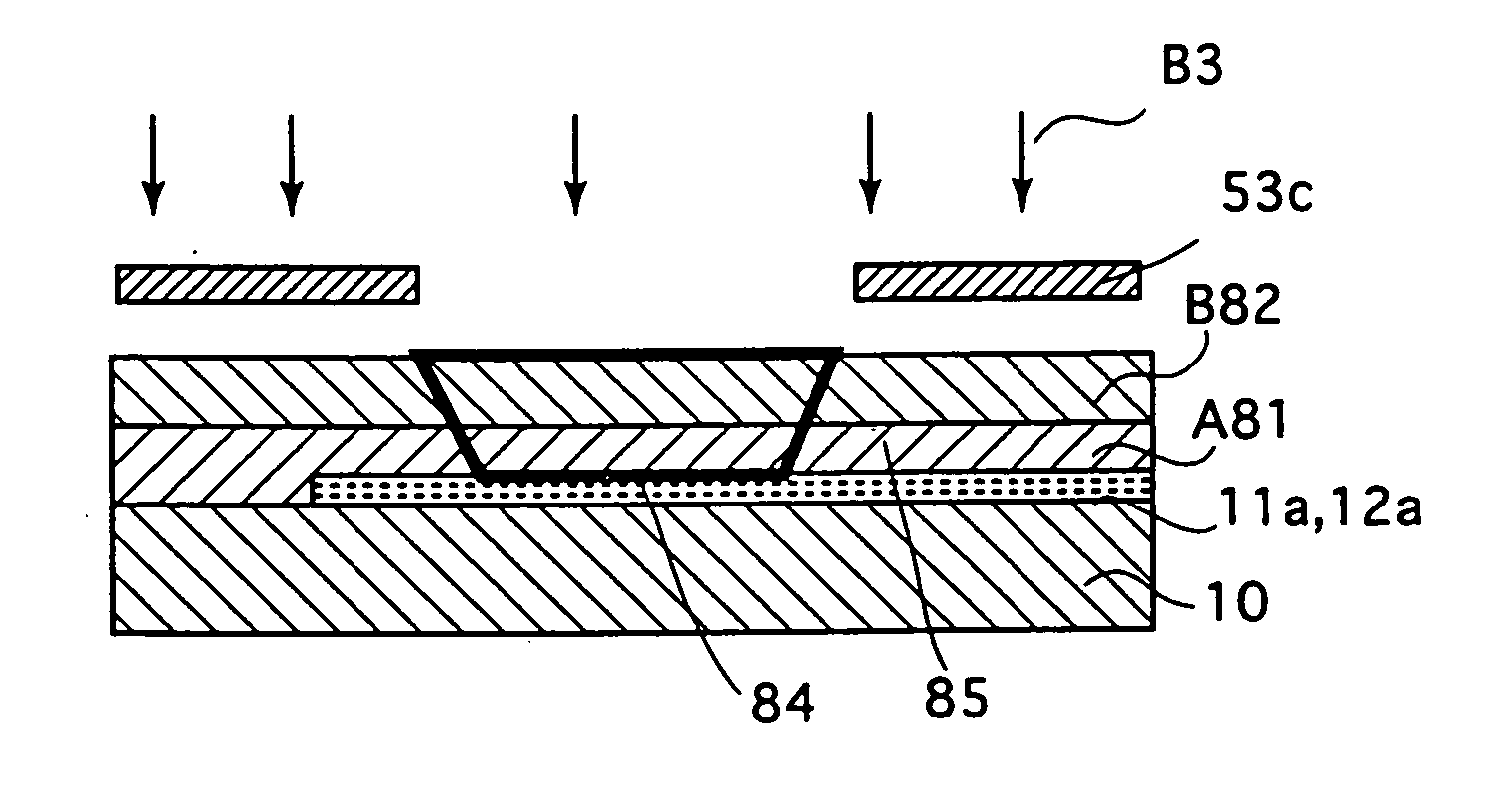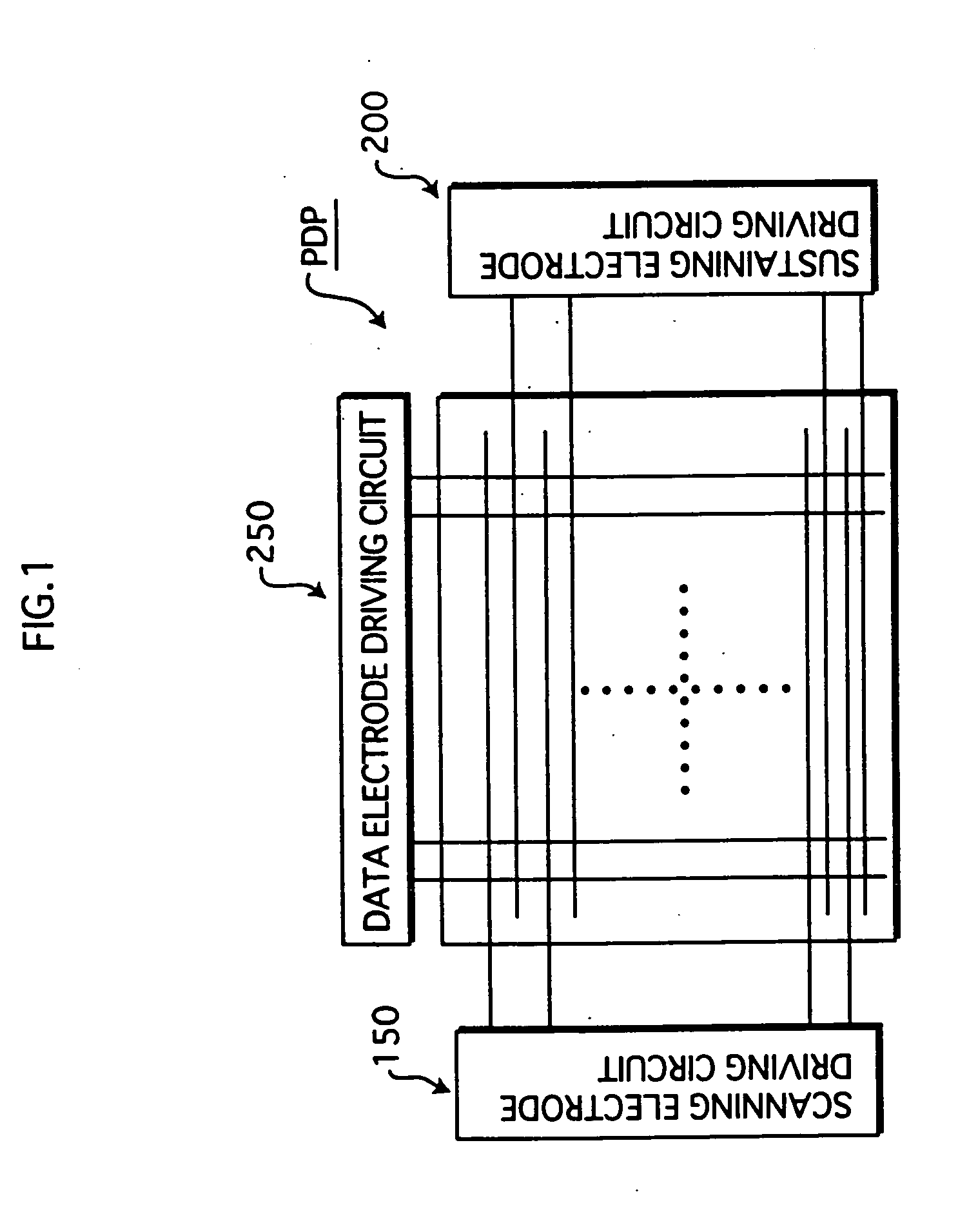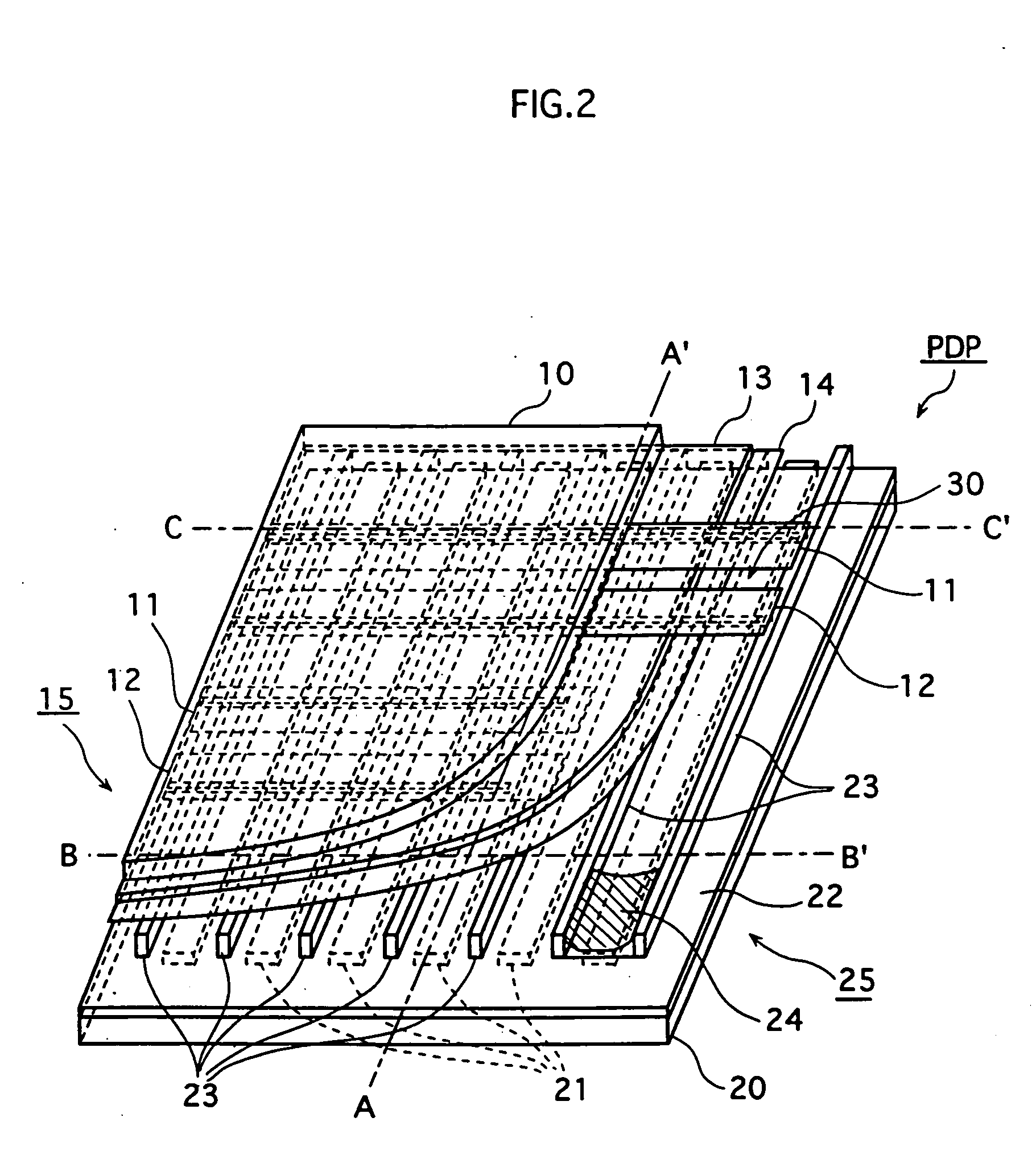Plasma display device and method for manufacturing the same
a technology of plasma and display device, which is applied in the manufacture of electrode systems, instruments, electric discharge tubes/lamps, etc., can solve the problems of linearity decline, decrease of line-shaped electrode linearity, and decrease of lengthwise electrode linearity, so as to achieve effective suppression of edge curl
- Summary
- Abstract
- Description
- Claims
- Application Information
AI Technical Summary
Benefits of technology
Problems solved by technology
Method used
Image
Examples
first embodiment
[Construction of Panel]
[0056]FIG. 1 is a block diagram illustrating a construction of an AC plasma display device according to the First Embodiment of the present invention.
[0057] As shown in this figure, an AC plasma display device comprises a plasma display panel and driving circuits 150, 200, and 250.
[0058]FIG. 2 is a perspective view illustrating a main construction of a PDP. As shown in this figure, the PDP comprises a front substrate 15 and a back substrate 25. The front substrate 15 is such that a plurality of pairs of line-shaped scanning electrodes 11 and sustaining electrodes 12 are disposed in parallel on a transparent first glass substrate 10, and a dielectric layer 13 and a protective layer 14 are laminated over the electrodes. The back substrate 25 is such that a plurality of line-shaped data electrodes 21, positioned perpendicular to the scanning electrodes 11 and the sustaining electrodes 12, are disposed on a second glass substrate 20, a dielectric layer 22 is di...
second embodiment
[0129] In the first embodiment, the widths of the exposure masks are set so that 53A (W1) becomes smaller than 53B (W2). According to the second embodiment, it is also possible to obtain the same effect in a case in which the upper layer is exposed using the same exposure mask used in the exposure of the upper layer, or using a exposure mask having the same width as the mask used in the exposure of the upper layer. Specifically, conditions are set as shown in the table 1, where at least one of the luminance, the light exposure, and the proxy amount (the distance between the mask and the substrate) is smaller than the conditions for the upper layer exposure. The rest of the process is conducted in the same manner as the first embodiment.
TABLE 1Examples of ExposureLightProxyWidth afterLuminanceExposureAmountDevelopment(mW / cm2)(mJ / cm2)(μm)(μm)Comparison1111ExampleExample 10.5110.9Example 210.1710.9Example 3110.50.9Example 40.50.1710.81Example 50.510.50.81Example 610.170.50.81Example ...
third embodiment
[0135] By a method for manufacturing the electrodes according to the third embodiment, like the first and second embodiments, it is possible to improve the production margin and to manufacture the electrodes having high reliability without disconnection by making the width of the lower layer smaller than the width of the upper layer. Specifically, the lower layer is exposed using an exposure mask, having smaller width than a mask used in the upper layer exposure, or the same exposure mask used in the exposure of the upper layer or a exposure mask having the same width as the mask used in the exposure of the upper layer under the similar conditions stated in the table 1, for example.
[0136] In the present embodiment, an example in which electrodes are formed into a shape having parts connecting two adjacent electrodes (hereinafter referred to as a short-bar) is explained. In a case in which fence electrodes made of a plurality of thin wires are used for the sustaining electrodes and ...
PUM
| Property | Measurement | Unit |
|---|---|---|
| softening point | aaaaa | aaaaa |
| temperature | aaaaa | aaaaa |
| temperature | aaaaa | aaaaa |
Abstract
Description
Claims
Application Information
 Login to View More
Login to View More - R&D
- Intellectual Property
- Life Sciences
- Materials
- Tech Scout
- Unparalleled Data Quality
- Higher Quality Content
- 60% Fewer Hallucinations
Browse by: Latest US Patents, China's latest patents, Technical Efficacy Thesaurus, Application Domain, Technology Topic, Popular Technical Reports.
© 2025 PatSnap. All rights reserved.Legal|Privacy policy|Modern Slavery Act Transparency Statement|Sitemap|About US| Contact US: help@patsnap.com



